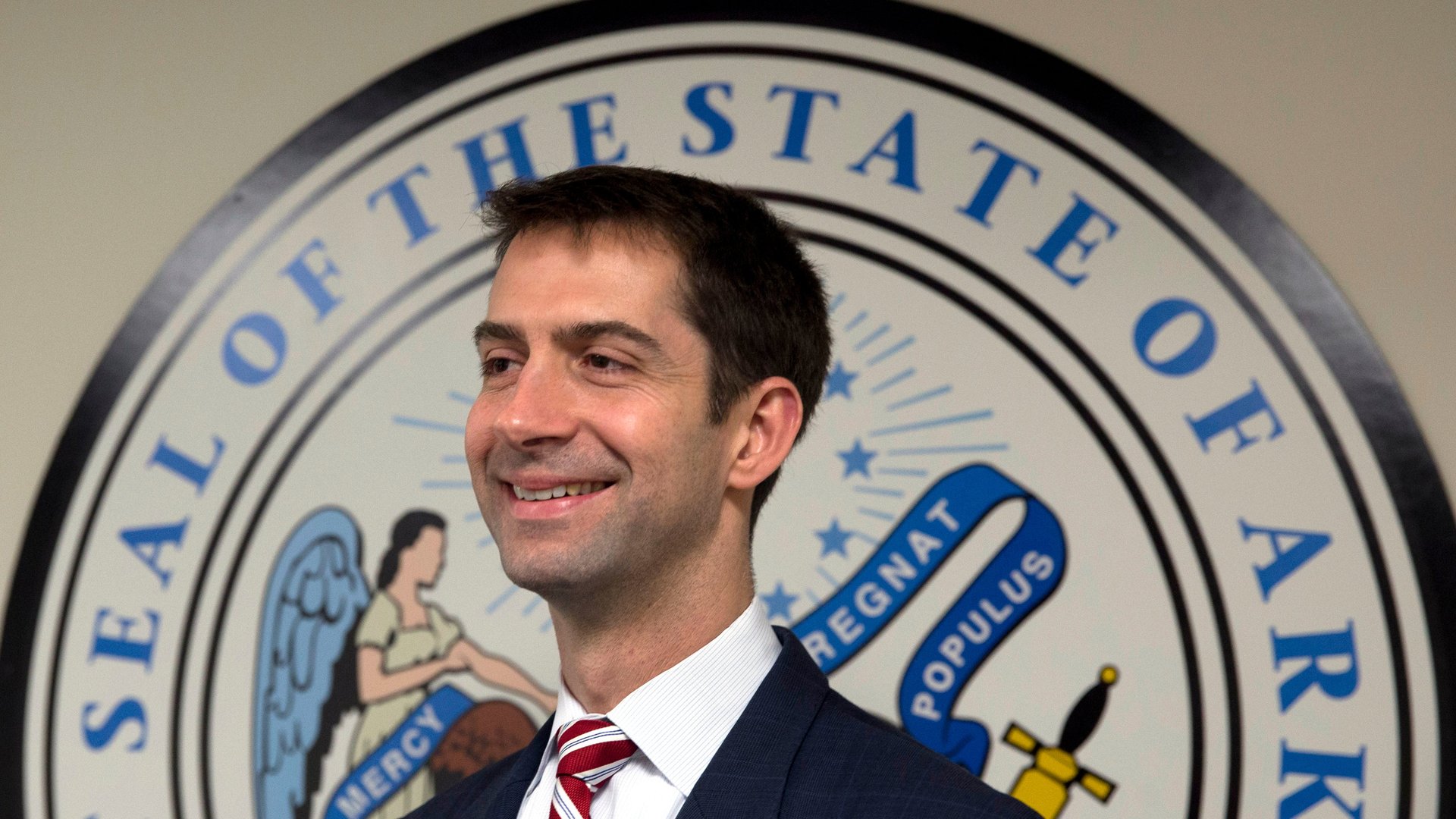Don’t be fooled by the simple supply-and-demand argument of anti-immigration politicians
Arkansas senator Tom Cotton argues this morning on the opinion pages of the New York Times that Donald Trump’s election as US president is a mandate to “fix immigration.” To Cotton, that means reduce the number of legal immigrants allowed into the country, increasing the proportion that are highly educated, and rooting out undocumented workers, as a means for shrinking the labor supply and boosting American wages.


Arkansas senator Tom Cotton argues this morning on the opinion pages of the New York Times that Donald Trump’s election as US president is a mandate to “fix immigration.” To Cotton, that means reduce the number of legal immigrants allowed into the country, increasing the proportion that are highly educated, and rooting out undocumented workers, as a means for shrinking the labor supply and boosting American wages.
But even in the wake of Trump’s Nov. 8 victory, the facts about immigrants and US workers haven’t changed: Immigration has at worst a negligible effect on American workers’ wages, and in many cases, it helps boost them.
We delved into this early during Trump’s anti-immigrant campaigning, looking at two long-term studies that attempted to estimate the effect of immigration on US wages over two time periods when immigration into the US increased. In both cases, Americans’ wages actually increased on average:
Since we last published that table, in August 2015, the National Academy of Sciences convened a major study of immigration in the US. Looking over the literature, the panel took note of numerous methods of study attempting to isolate the new workers entering a complex economy.
Their conclusion? Evidence can be found of short-term impacts on wages from massive shifts in the labor market—like the sudden arrival of 100,000 Cubans in Miami in 1980—but in looking at periods of 10 years or more, “the impact of immigration on the wages of natives overall is very small.”
That may seem counterintuitive to those who would believe that more workers competing for the same jobs would lead to lower wages—including Cotton, who argues that “the law of supply and demand is not magically suspended in the labor market.”
But that simple mental model doesn’t take into account how the economy actually functions. Just as the number of workers in the economy isn’t fixed, the amount of capital that can put those workers to use can change as well. Immigrants tend to have a positive effect on economic growth because they often have different skills than American workers, and because they themselves are consumers.
It is true, as Cotton notes, that the main group that immigrants compete with are men without a high school degree, and research shows that these Americans do see small wage decreases (on the order of -0.2% over the long-term). But that observation only raises the question of whether the best solution to their very real challenges in the global economy is to create more low-skill jobs for the approximately 1 in 10 American adults who don’t have high school degrees, or push to ensure all American adults have a high school education.
Cotton could have an instructive discussion about that strategy with Trump’s prospective secretary of Labor, Andy Puzder, an advocate of replacing low-skilled workers with robots at his fast-food franchises. Puzder’s previous calls for more temporary guest workers to work service jobs raised concerns among Trump supporters and led him to issue a statement disavowing his past experience.
What’s missing in Cotton’s op-ed is any explanation for why wages have remained so stagnant for middle-income Americans in recent decades. “No doubt automation and globalization have also affected wages,” he says in an aside. But economists repeatedly find that those two trends have much larger direct effects on wages than immigrants: Particularly important has been MIT economist David Autor’s granular examination of the regions most affected by trade with China, which show significant, lasting impact on wages. In the future, the real wage pressure is coming from robots.
Cotton is a long-time booster of free trade deals, and one of his state’s largest businesses is Wal-Mart, which has enthusiastically purchased goods made abroad. As other proponents of globalization—like Puzder, Goldman Sachs’ Gary Cohn, and ExxonMobil CEO Rex Tillerson— find their way into Trump’s cabinet and White House offices, all the sturm und drang over an issue that doesn’t affect American workers very much seems designed to distract from a potential lack of action on issues, like global competitiveness, that do.